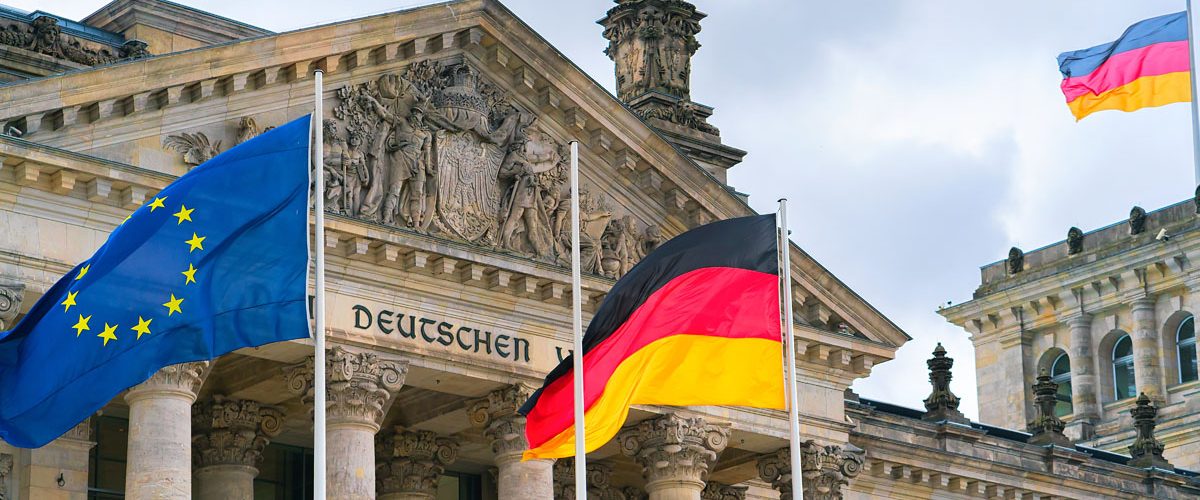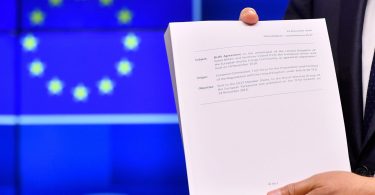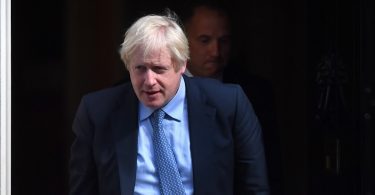by Gunnar Beck, Barrister and Reader in EU law & Legal Theory, University of London
This article first appeared in the Wall Street Journal Europe
Germany seems to be softening her stance on Brexit. On 17 August Michael Roth, Germany’s Minister of European Affairs, said, “Given Britain’s size, significance, and its long membership of the European Union, there will probably be a special status which only bears limited comparison to that of countries that have never belonged to the European Union.” Roth’s comments mark a departure from Chancellor Merkel’s comments shortly after the Brexit referendum that Britain would receive no special treatment, nor would she be allowed to “cherry-pick” in trying to retain full access to the single market.
Roth’s comments have not gone unnoticed in the British press. The initial response was a negotiating tactic which has been exposed when Theresa May refused to trigger Art. 50. Since Merkel has come out publicly in support of the EU’s and France’s position against any cherry-picking, Germany’s emerging position is being communicated on a more junior level. It allows the German government to begin the process of shifting the ground while not appearing to change its mind (yet).
Few, however, realise how weak Germany’s and the EU’s negotiating position actually is.
Chancellor Merkel is committed to ‘ever closer integration’ at any cost and wants to transform Germany into the ‘moral superpower’ of the 21st century. With considerable skill she has disguised the true cost of the euro rescue and shifted the book value of Germany’s total loans and guarantee exposure to the balance sheets of the European Central Bank, the European Stability Mechanism and the Bundesbank which have become ‘bad banks’ where non-performing assets can be bunkered without being written off. Officially, the cost to the Federal budget has been limited to a few dozen billion euros since 2010.
Meanwhile Merkel’s policies are paid for principally by German tax payers who would otherwise benefit from tax cuts, better public services and infrastructure and savers. According to a study of Germany’s Postbank, German savers lost EUR 125bn from 2011 to 2015 in terms of interest income due to the ECB’s ultra-loose monetary policy. Add to this the price of Merkel’s open door policy to migrants which will cost €50 billion in 2016 and 2017 alone, whilst, on the optimistic assumption that most refugees will find work, the likely cost over the next 20 years could be nearly €400 billion. If integration fails or many more refugees arrive, the cost will be significantly higher.
With subdued domestic demand, Germany and the EU depend on trade-induced moderate growth including close trading relations with Britain. Nine EU countries send at least 5% of their total exports to the UK. In Germany whose economy is highly export-dependent, that percentage is about 7.5% of total exports. In 2015 Germany’s trade surplus with the UK alone was a staggering €51bn, about one fifth of Germany’s entire trade surplus.
If anything, these figures understate Germany’s economic dependency on Britain. In 2015 around 36% of Germany’s total exports went to the Eurozone. However, under the so-called TARGET2 payments systems operated by the European Central Bank, Germany’s balance of payments surplus with the eurozone is financed not by the transfer of foreign currency reserves, gold or other near-liquid assets to Germany but by an open-ended overdraft facility granted by the Bundesbank.
Under this peculiar system, the exporter is paid but not by the importing country but Germany’s central bank, i.e. the German public at large, which never receives payment from the importing country but a mere credit note from the importing country’s central bank. As of July 2016 the Bundesbank’s TARGET2 balance stood at over €660bn. That sum is the total debt owed by other eurozone central banks to the Bundesbank, which is unlikely ever to be repaid. The Bundesbank, in other words, has become another ‘bad bank’ financing the current account deficits of other eurozone members. Germany’s trade surplus with the eurozone therefore is little more than a massive ‘accounting trick.’ If German eurozone exports were paid for in the same way as her other exports, Germany would be a much richer country. That Germany is moderately prosperous at all, is owed in large measure to her ‘real’ non-eurozone trade surplus. Germany and, by analogy, other export-driven eurozone economies depend on trade with the UK as a key trade partner outside the dysfunctional eurozone much more than is commonly realised.
Moreover, the EU as a whole is not in a position to withstand further financial turmoil which would be the inevitable concomitant of difficult and protracted Brexit negotiations. Italy’s banks are neck-deep in non-performing loans (NPLs). Official data estimates the total amount of NPLs at around 200 billion euros at around 8% of total loans. However, Wells Fargo, a U.S. investment bank, put the NPL ratio as high as 15% of their loan portfolios or around €350bn. Banca Monte dei Paschi alone, according to the ECB, had nonperforming loan exposure of at least €46.9 billion in 2015.
ECB President Draghi is well aware of the EU’s fragility. According to ECB and Italian political sources he has assured his former colleagues at Goldman Sachs and other investment banks that Germany cannot do anything to put trade relations at risk. Due to ongoing euro crisis measures and increasing costs of her refugee policy, Germany’s economy and public finances are likely to weaken while German unemployment should start rising at the beginning of next year. Critically, Draghi also reportedly expressed confidence that French and Commission resistance to concessions to Britain could be overcome and that, in return, Merkel was open to agree to French demands for a eurozone finance ministry after the 2017 German election and to provide German money for a bail-out of Italy’s moribund banks.
If the UK government plays its hand well, it will be able to choose its terms of renegotiation with the EU and cherry-pick at that. By postponing the official start of withdrawal negotiation until 2017 Theresa May has made a promising start.
from: https://lawyersforbritain.org/eu-deal-germany-cant-afford-hard-bargain.shtml







